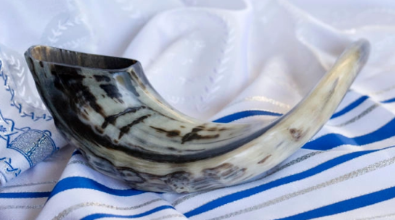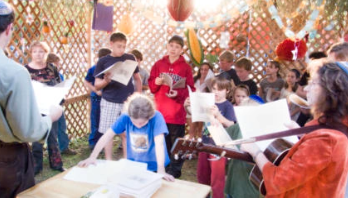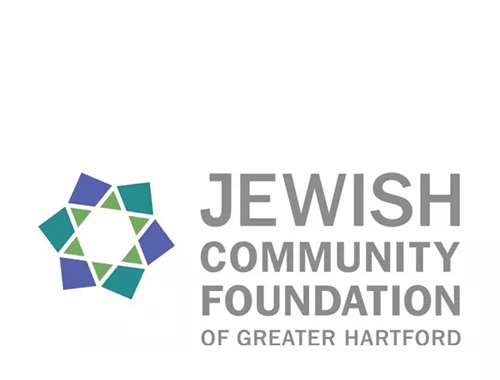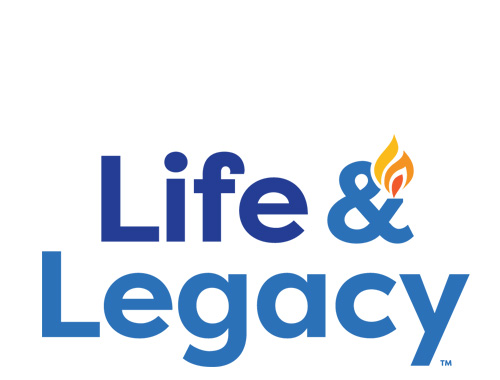Schechter Shavua: September 22, 2023
Using Senses, Making Predictions, and Calculating Results to Learn About Rosh Hashanah
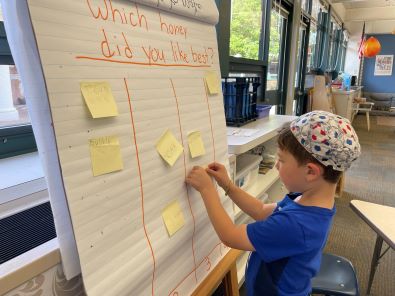 As part of a cross-curricular study including Rosh Hashanah, science and math, the Ilanot (Kindergarten) students conducted a honey tasting. They used their senses to observe the honey. They made predictions about which of the four varieties of honey they thought they would like best, and then they tasted it! After trying it with varying degrees of enthusiasm, they added their names to a simple graph designed to measure which variety they liked best. Students then discussed the data that they collected. The next day, they used honey as the star ingredient in honey cookies, baking enough to share with their families. One student who originally didn’t like honey now enjoys the taste! Another student exclaimed that it was just too difficult to decide her favorite…. she just wanted to eat them all!
As part of a cross-curricular study including Rosh Hashanah, science and math, the Ilanot (Kindergarten) students conducted a honey tasting. They used their senses to observe the honey. They made predictions about which of the four varieties of honey they thought they would like best, and then they tasted it! After trying it with varying degrees of enthusiasm, they added their names to a simple graph designed to measure which variety they liked best. Students then discussed the data that they collected. The next day, they used honey as the star ingredient in honey cookies, baking enough to share with their families. One student who originally didn’t like honey now enjoys the taste! Another student exclaimed that it was just too difficult to decide her favorite…. she just wanted to eat them all!
MakerSpace Students Race to Synagogue
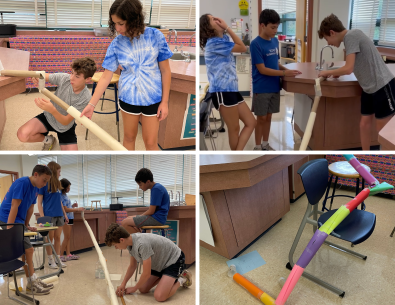 In 7th and 8th grade MakerSpace last week, students were tasked with racing to the synagogue to hear the shofar being blown for Rosh Hashanah. Student teams had to design and build a walkway that was at least three meters long, rose or fell at least one meter, and contained at least two 90-degree turns… all while using only paper, tape and paperclips.
In 7th and 8th grade MakerSpace last week, students were tasked with racing to the synagogue to hear the shofar being blown for Rosh Hashanah. Student teams had to design and build a walkway that was at least three meters long, rose or fell at least one meter, and contained at least two 90-degree turns… all while using only paper, tape and paperclips.
The student teams approached the problem in several different ways: some worked on every aspect of the challenge together, while others "divided and conquered" so that one student worked on the 90-degree turns, another on building the walkway, another measuring height and distance. In the end, the 8th grade beat the 7th grade by 0.1 seconds, but all had a wonderful time and a sweet new year!
How Does a Two Year Old Understand Tashlich?
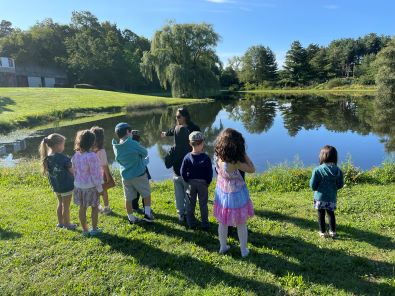 Holidays and practices are observed in age-appropriate ways throughout Schechter. For example, take Tashlich , a ceremony held between Rosh Hashanah and Yom Kippur in which Jews symbolically cast off the sins of the previous year by tossing pebbles or bread crumbs into flowing water. Before heading to a nearby pond for Tashlich, our youngest students read stories and discussed the importance of saying, “I’m sorry” or “slicha,” while older students at a different developmental level better understand the significance of Yom Kippur and can reflect in deeper ways.
Holidays and practices are observed in age-appropriate ways throughout Schechter. For example, take Tashlich , a ceremony held between Rosh Hashanah and Yom Kippur in which Jews symbolically cast off the sins of the previous year by tossing pebbles or bread crumbs into flowing water. Before heading to a nearby pond for Tashlich, our youngest students read stories and discussed the importance of saying, “I’m sorry” or “slicha,” while older students at a different developmental level better understand the significance of Yom Kippur and can reflect in deeper ways.
The Nitzanim class (EC2) prepared for Tashlichby listening to a story about this custom during morning meeting; they were then accompanied to the pond by the 7th and 8th graders and their Hebrew teachers. At the pond, they listened to some blessings, then the older students helped them throw pieces of bread into the pond, representing the deeds they are sorry for. They also observed as the older students wrote about their own mistakes, which were then washed away in a bucket of water.
(Photo above: Anafim 1st graders reflect during their Tashlich ceremony.) Click HERE to see photos of the Tashlichritual.
Parashat Ha’azinu/Yom Kippur—A request for forgiveness and reproof
 The clock is ticking; only days left until Yom Kippur. It’s the time of year when we are supposed to seek out people we’ve wronged, and apologize to them, three times if necessary.
The clock is ticking; only days left until Yom Kippur. It’s the time of year when we are supposed to seek out people we’ve wronged, and apologize to them, three times if necessary.
I began having these conversations this week: “Could we talk for a minute? I still feel bad about what I said (or did). I didn’t mean to come across that way—but I know that I hurt your feelings (or put you in a bad position, or made a bad situation worse). I’m really sorry, and want to make things better.” When we are aware of our faults, it is easy to correct them.
So often, though, we aren’t aware that we’ve done wrong. Our innocent thoughts may have emerged as hurtful words. We may have said something careless that caused anger or pain because we weren’t aware of important history or context. How can we apologize when we don’t know what we’ve done? How can we heal a breach we don’t sense?
That is why there is an actual mitzvah—a religious responsibility—to kindly tell others that they’ve hurt us. In Leviticus 19:17-18, it states, “Reprove your kinsman… do not bear a grudge.” We may tell ourselves that something wasn’t a big deal—but it eventually causes us to grow distant from a former friend, and the other person doesn’t even know why. If we approach our friend and say, “I know you didn’t mean it, but something you said to me a while ago rubbed me the wrong way. I never said anything, but it’s the time of year to talk things over”—then, wounds can be healed, and relationships can be repaired.
And so, I appeal to you, as Yom Kippur approaches: please fulfill the mitzvah of reproof. If I owe you an apology that you haven’t received, tell me, for I may not know what I did. If a teacher or administrator—or co-worker, friend or family member—said something hurtful, let them know; give them a chance to make it right. The root of the word “atone” is the words “at one.” Only through the process of apology and forgiveness—and reproof, if necessary—can we atone, can our relationships grow stronger, can we become at one with each other.
G’mar hatimah tovah—may you be sealed in the Book of Life. May we all have a wonderful, healthy, happy year, full of learning and growth—and atonement.
Rabbi Jonathan Berger
Head of School
Solomon Schechter Day School
of Greater Hartford
26 Buena Vista Road
West Hartford, CT 06107
© Solomon Schechter Day School of Greater Hartford | Site design Knowles Kreative
